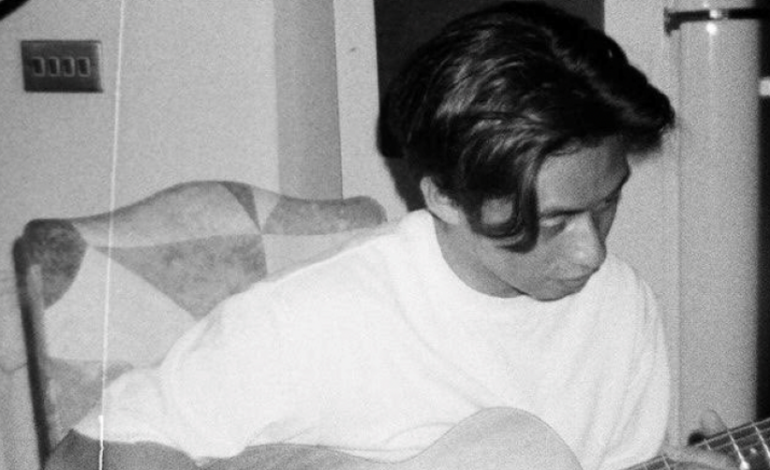Let me fill you in; Spotify, the streaming service that we all have feelings about is making changes to how they pay royalties. According to reports from “music business ” significant shifts are on the horizon.
These adjustments are not tweaks. They’re more like massive waves that will shake up the entire music scene. Whether you’re a big name label or an independent artist working hard in your space these changes will impact everyone.
It’s no secret that when a powerhouse, like Spotify makes a move it sends ripples through the industry. So what does this mean for emerging artists and the companies supporting them in getting their music ? Let’s dive into it shall we?
2024 Spotify Royalty Model Changes
Cracking Down on Bot Streams Alright, so Spotify’s on a warpath against fake streams. Can’t blame ’em, right? Nobody wants to shell out cash for robot listeners. But here’s where it gets interesting – they’re not just taking on this fight solo. Nope, they’re dragging the distributors into the ring too.
What does this mean? Well, distributors are gonna have to up their game big time. They’ll need to play detective and catch those sneaky bots before they inflate stream counts. Sounds fair on paper, but here’s the kicker – not all distributors are created equal.
The big companies like CDBABY, Ditto Music, and Distrokid? They’ll probably weather the storm. Sure, they might hike up their fees a bit to cover the new costs, but they’ve got the resources to adapt.
But the little guys? The mom-and-pop distributors trying to carve out their niche? They might be in for a rough ride. We could see some of them shutting up shop because they just can’t afford to play ball with Spotify’s new rules.
And guess who might end up footing the bill in the end? Yep, you guessed it – the artists. Whether it’s higher fees from the big distributors or fewer options as smaller ones close down, musicians might find themselves shelling out more to get their music out there. Read more on how much Spotify pays per stream
The Requirement of 1,000 Streams
This new rule is a game changer. Spotify is setting a standard; if your song doesn’t reach 1,000 streams within a year you won’t earn any money. In the past even the first stream would bring in some (albeit royalties.. Now? It’s all about making an impact or not making anything at all.
Established indie artists with thousands of listeners won’t be affected much by this change. However for newcomers starting out and aiming to grow their fan base this could be a rule to comply with. By the way, if you’re launching a new song and you’re looking to easily and efficiently generate streams using Spotify ads, check out this Spotify ad campaign from One Submit. It’s a pretty unique service that generates you real streams using Spotify ads, and in most cases it triggers Spotify’s algorithmic playlists.
What’s the reason behind Spotify’s decision?
Well, they’re sick of paying out tiny amounts to distributors that often don’t even make it to the artists. Instead of these micro-payments sitting in distributors’ accounts, Spotify’s keeping that cash.
Again, this could spell trouble for smaller distributors. With less cash flow, some might have to close shop. And when there’s less competition? You guessed it – prices for artists could go up.
But here’s a silver lining – maybe this will push artists to promote their music more actively. If you need 1,000 streams to start earning, you might hustle harder to get your tracks in front of potential fans.
White Noise and Sound Effects
Bye-Bye Easy Money for Sound Effects Remember those clever folks who were making bank off of whale sounds and white noise? Spotify’s putting the kibosh on that little gold mine. Now, listeners need to stick around for a whole two minutes before it counts as a stream for these kinds of tracks.
At first glance, you might think, “So what? I’m not selling white noise.” But this is actually pretty sweet for real musicians. All that money that used to go to random sounds of waves crashing or birds chirping? It’s now up for grabs in the royalty pool.
This means there could be more cash floating around for genuine artists who are pouring their hearts and souls into their music. It’s like Spotify’s saying, “Hey, we value actual songs over background noise.” About time, right?
But here’s something to chew on – will this push more artists to create longer tracks? If two minutes is the magic number for royalties, we might see fewer short, punchy songs and more extended jams. Could be interesting for the future of music composition.
Last Words
You know it’s no secret that Spotify hasn’t been raking in the bucks over the ten years. It’s no surprise they’re looking to cut costs and boost their earnings.. Here’s the burning question; will these adjustments really benefit artists financially or just pad Spotifys bank balance?
Spotify has been pretty tight lipped, about whether the money saved from these changes will trickle down to the artists or simply add a shine to their statements. It’s a bit of a waiting game for now.
For musicians aiming to make a living, from their tunes (lets be real who isn’t?) it might be wise to consider diversifying income sources. Putting all your hopes in Spotify might not be the move right?
Perhaps now is the time to think outside the box. Sell some merchandise, host virtual concerts or explore music platforms. The industry is ever evolving so being adaptable and open minded is crucial.
Ultimately remember that it all comes down to the music.
These adjustments may appear overwhelming. They do not alter the fact that you’re actively creating art and engaging with your fans. That’s the part.
So continue putting in the effort stay creative and don’t let these changes, within the industry dishearten you. The world craves your music more than ever now. Who knows? Perhaps these modifications will unveil opportunities we haven’t yet envisioned.
Stay connected, maintain an outlook and above all else continue crafting those melodies. The destiny of music rests in your hands. We’re excited to witness (and listen to) what you produce next.
Rock, on and best of luck navigating through the realm of streaming!


